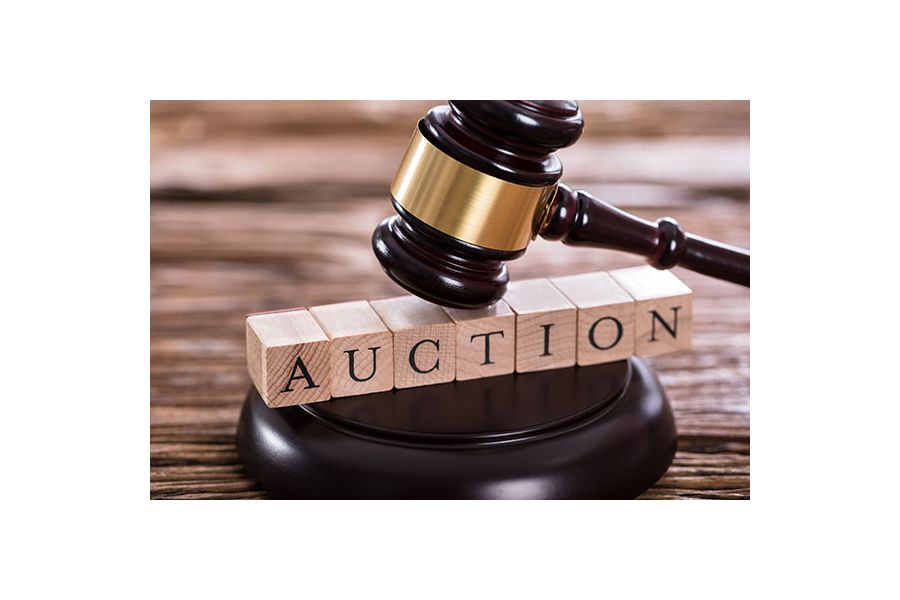On the Auction Block

The highest-priced estate in Dallas, once on the market for $135 million, sold at auction. So did thousands of homes nationwide that fell into foreclosure for failure to make mortgage payments.
Home auctions account for 10 percent or more of distressed property deals. Yet they’re also a time-honored way to determine a fair market value for multi-million dollar estates and resort homes and more modest properties. Drawing bidders to your house for a possible sale, as an auctioneer promotes the home or condo, can be a reasonable alternative to using an agent or selling the property yourself.
“Most people are familiar with the traditional home buying process—whether it’s going through real estate listings in search of property for sale or going through a real estate agent. However, these aren’t the only ways to invest in real estate. You can also buy property through a home auction,” Cleveland Real Estate website cited in an article last year.
Types of auctions that prove popular can change, too.
“The market for real estate auctions has undergone a big shift in many parts of the U.S., with residential property auctions drawing more investors who want to rent out homes versus flip them, and commercial property auctions seeing a rise in the sale of non-distressed buildings,” Investors Business Daily says in a piece in 2015. “These changes are the product of several different trends, ranging from an increase in home prices to rising confidence in the effectiveness of online auctions.”
Home auctions are usually held at locations chosen by auction companies, such as hotel conference rooms, or at local government courthouses. Sometimes, they take place online, Cleveland Real Estate notes.
The real estate bidding processes fall into three camps, the website points out, including:
- An absolute auction revolves around the highest bidder winning, no matter what. “If the starting bid is a hundred dollars and you’re the only buyer to show up, you could end up winning the auction at a hundred dollars,” the website points out. Such auctions typically include more people bidding because they can pick up a house at a bargain price.
- A minimum bid auction includes a published price ahead of time; the seller won’t accept any price below that. “Minimum bid auctions tend to reduce the risk for the seller; however, the minimum bid is usually low enough to attract the interest of buyers instead of acting as a hindrance to potential bids,” the online site says.
- A reserve auction includes bidding but the highest figure is an offer, not the sale price. It’s up to the seller to accept or reject the total.
Auctions account for the largest share of foreclosures at 37 percent, with 32.1 percent in the pre-foreclosure stage and 30.8 percent owned by a bank, typically the one that initiated the foreclosure, according to August figures from RealtyTrac real estate information service.
The company also found that “foreclosure auction sales are taking up a bigger percentage of overall home sales,” making up 1.23 percent of all deals in 2015 compared with 0.5 percent in 2012, according to the Investors Business Daily report.
“In contrast, the commercial property auction market has seen a rise in the number of non-distressed properties,” the publication notes. It cited activities from Auction.com, which focuses on property sales in the hospitality, retail, multi-family housing and office sectors.
Eli Epstein writing for Mashable website says auctions can save money and time for first-time home buyers and others with not a lot of funds to access.
“One option that appeals to many buyers with pinched pockets is buying a home — foreclosed or non-distressed — at auction, where bidders decide how much the home is worth and can leave with a title the day of the auction,” he says.
“The excitement of winning a home at a very low price is what keeps homeowners and investors coming back to auctions,” Mashable says, citing RealtyTrac comments. “It’s similar to shopping at a discount retailer and swooping in on the exact item you want before anyone else in the store can get to it.”
High-end properties take the auction route, too.
The Crespi Estate, a 25-acre property in Dallas dating to 1938, includes a 28,996 square foot mansion. An Italian count and his American wife built the massive home after being sent to Dallas to manage the family’s cotton empire, according to an article this summer in Forbes.
In 2000, then Texas Rangers and Dallas Stars owner Tom Hicks “embarked on an aggressive, extensive three-year renovation, rebuilding and enlarging the house,” according to the Forbes article by Candace Evans.
“The home easily had millions in improvements and structure on land valued at $51 million in 2013, when Hicks first put it on the market for $135 million, billed as the most expensive listing in the U.S. The price was later lowered to $100 million when Hicks changed agents,” Evans wrote. It came complete with a pool, tennis courts, 3,300-square-foot guest house and a 4,800-square-foot pool house complete with a movie theater, game room and spa, she says.
North Texas developer and investor Mehrdad Moayedi bought the property at auction in December 2017, and is “flipping the main house and creating exclusive estate lots of the remaining acreage,” the Forbes article notes.
Copyright © CTW Features